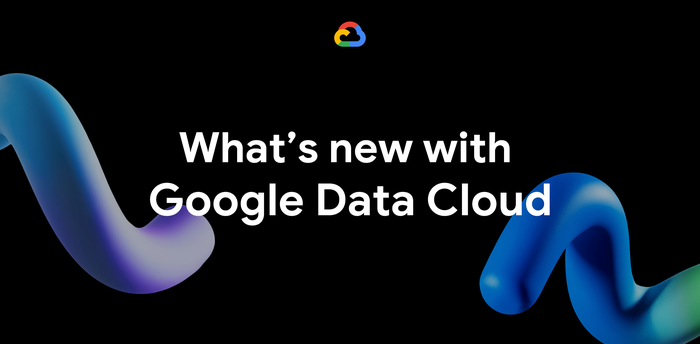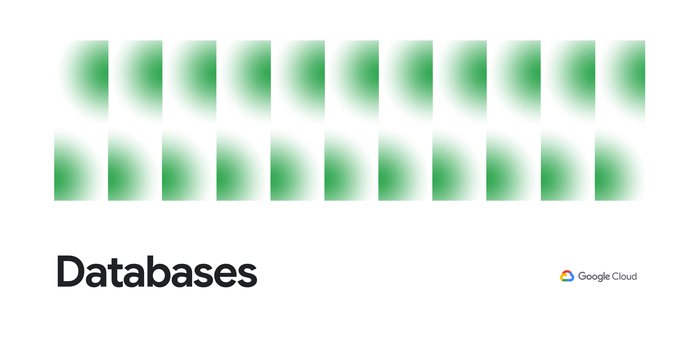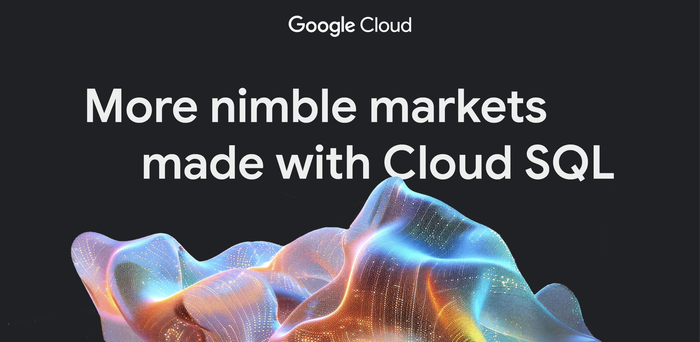What’s new and what’s next with Google Cloud databases

Ritika Gunnar
Sr. Director, Product Management & Product Activation
At Google Cloud, we’re committed to enhancing our database services to enable you to innovate faster with an intelligent, unified and open data ecosystem. To help, we’re excited to announce a series of new features and capabilities that help you to:
- Easily build enterprise generative AI applications, everywhere
- Simplify database tasks with Duet AI
- Break down barriers between transactional and analytical systems
- Modernize and build an open data estate
Easily build enterprise gen AI applications, everywhere
Operational databases sit at the heart of many applications, and play a critical role in how developers build new AI-assisted customer experiences. Today, at Google Cloud Next, we introduced AlloyDB AI, an integrated set of capabilities for easily building enterprise gen AI apps, everywhere. AlloyDB AI is an integral part of AlloyDB, our PostgreSQL-compatible database service, and offers high performance, pgvector-compatible vector search that is up to 10 times faster and supports four times larger vectors than standard PostgreSQL. It also allows you to easily generate embeddings from within your database, and fully integrates with Vertex AI and open-source gen AI tools. Together, these features can help you build a wide range of AI experiences.
AlloyDB AI is available in preview through AlloyDB Omni, our downloadable edition of AlloyDB, and will be coming later this year on the AlloyDB cloud service. Learn more about AlloyDB AI.
Simplify database tasks with Duet AI
Duet AI in Google Cloud is an always-on AI collaborator that uses gen AI to help cloud users of all types, where they need it.
We’re bringing the power of Duet AI to our database services to help with SQL generation, database operations, or even with migrations from legacy databases. With Duet AI in Cloud Spanner, you can generate code to structure, modify, or query your data using natural language. For example, with a simple command such as “write a query to show all data in the messages table,” you can have Duet AI automatically generate the required SQL, which you can further review or modify, significantly reducing the time to develop code for applications, and helping you boost productivity. We also plan on bringing such Duet AI capabilities to other databases including Cloud SQL and AlloyDB.
To benefit from AlloyDB and open-source compatibility, many of our customers are looking to modernize off legacy databases. They want to embrace more modern, open technologies as part of their innovation roadmaps. Today, we announced the general availability of the Oracle to PostgreSQL migration capability in Database Migration Service to help enterprises migrate to Cloud SQL for PostgreSQL and AlloyDB in an integrated and easy fashion.
And to make it even easier to modernize your Oracle databases, we’re also bringing the power of Duet AI to the last mile of Oracle to PostgreSQL migrations with Duet AI in Database Migration Service. With this capability, developers can use AI-assisted code conversion to automate the conversion of database code, such as stored procedures, functions, triggers, packages and custom PL/SQL code, to PostgreSQL. Sign up for the preview today.
"Chicago Mercantile Exchange (CME) Group is looking to AlloyDB for their most demanding enterprise workloads. They are already in the process of migrating several databases from Oracle to AlloyDB."
Break down barriers between transactional and analytical systems
Traditionally, businesses have used separate transactional and analytical systems to store and process data, which can make it difficult for them to get the most out of their data. At Google Cloud, we’re helping you break down the barriers between these systems.
Today, we announced the general availability of Cloud Spanner Data Boost, a breakthrough technology that allows you to analyze your Spanner data via services such as BigQuery, Spark on Dataproc, or Dataflow — all with virtually no impact to your transactional workloads. Data Boost delivers high-performance, workload-isolated, on-demand processing of operational data to support analytics, reporting and more by taking advantage of Google’s disaggregated compute and storage architecture.
Google Cloud customers such as CERC, a Brazilian financial institution, are rapidly adopting Data Boost.
“CERC, a company that is revolutionizing the Brazilian financial market, processes over 100,000 financial transactions per second at low latencies. With Cloud Spanner Data Boost, we can run analytical queries on this data without impacting our transactional workload and at higher performance, which is critical for us. Data Boost has been a game changer, enabling real-time analytics on transactional data at lower cost without the overhead of creating replicas or overprovisioning resources.” - André Guergolet, Principal Engineer, CERC
We’re also making it easier to ingest data from BigQuery back to operational databases like Bigtable, our HBase-compatible, NoSQL database, with just a few clicks. Today, we’re announcing Reverse ETL support from BigQuery to Bigtable. With the new BigQuery Export to Bigtable feature, you can serve analytical insights from your applications without having to touch any ETL tools. This feature is available for sign-up in preview.
Modernize and build an open data estate
At Google Cloud, we’re focused on becoming the most open cloud provider, helping you build modern data-driven applications. We are committed to open source and open standards and offer managed services that are fully compatible with the most popular open-source engines, such as Cloud SQL for MySQL and PostgreSQL, and Memorystore for Redis.
Just last month, we announced Enterprise Plus edition for MySQL and PostgreSQL, providing new availability, performance, and data protection enhancements in Cloud SQL. Cloud SQL Enterprise Plus edition for MySQL delivers up to three times higher performance than Amazon’s comparable MySQL service.
We’re also working on supercharging our Memorystore for Redis offering with a brand new fully managed offering, Memorystore for Redis Cluster, available today in preview. With Memorystore for Redis Cluster, you get an easy-to-use, open-source compatible Redis Cluster service that provides up to 60 times more throughput than Memorystore for Redis, with microseconds latencies.
Finally, open is also about developing an open ecosystem of partners. Today, over 1,000 software partners power their applications using Google’s Data Cloud. To reinforce our commitment to partners, we are excited to announce the launch of Google Cloud Ready for Cloud SQL, a program that recognizes partner solutions that have met integration requirements with Cloud SQL. This program joins our existing Google Cloud Ready for AlloyDB partner program.
Getting started
To help you get up and running on Google Cloud databases, we offer a comprehensive Database Migration Program that can give you confidence and help ensure that your migration experience is fast, easy, and cost effective.
The future of data and AI is bright, and Google Cloud databases offer an intelligent, unified, and open platform on which to build your future innovations.
To learn more, you can read about our database portfolio. And for more from Next ‘23, check out the What’s Next for Google Cloud Databases Spotlight session and the deep dive sessions in the Database Professionals track.


